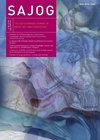育龄妇女子宫动脉栓塞前后抗苗勒管激素治疗症状性子宫肌瘤
IF 0.4
Q4 OBSTETRICS & GYNECOLOGY
引用次数: 2
摘要
背景子宫肌瘤是最常见的妇科良性肿瘤,传统的治疗方法是子宫肌瘤切除术或子宫切除术。子宫动脉栓塞(UAE)提供了一种替代的非侵入性治疗选择。阿联酋对希望保留卵巢功能的女性卵巢储备的影响仍令人担忧。目标。通过栓塞前后测量的抗苗勒管激素(AMH)来确定UAE对卵巢储备的影响,并评估中期(UAE后12个月)血清AMH的趋势。方法。2012年10月至2015年5月的一项队列研究招募了40名有症状的子宫肌瘤患者。在栓塞前和栓塞后2周、6个月和12个月测量血清AMH。使用描述性统计和双变量分析,比较栓塞前和栓塞后AMH浓度。P<0.05被认为具有统计学意义。结果。参与者的中位年龄为38.5岁(范围为31-45岁)。在招募的女性中,47.5%(19名)是未产妇,72.5%(29名)的女性希望未来怀孕。栓塞前AMH中位数(标准差)为1.3 ng/mL(1.53),栓塞后2周AMH中位数为0.9 ng/mL(1.98);6个月时,2.2 ng/mL(2.63);12个月为3.5ng/mL(1.54)(p=0.96)。在中短期内,未发现UAE治疗有症状的子宫肌瘤对卵巢储备有害。考虑到本研究中的大多数女性都有保持生育能力的强烈愿望,有必要进行长期研究,评估其对生育能力的影响。本文章由计算机程序翻译,如有差异,请以英文原文为准。
Anti-Mullerian hormone before and after uterine artery embolisation in reproductive-age women seeking treatment for symptomatic fibroids
Background. Uterine fibroids are the most common of the benign gynaecological tumours, the definitive traditional treatment for which is either myomectomy or hysterectomy. Uterine artery embolisation (UAE) offers an alternative non-invasive option for treatment. There remain concerns as to the effects of UAE on ovarian reserve in women desirous of preserving ovarian function. Objectives. To determine the effect of UAE on ovarian reserve, as assessed by anti-Mullerian hormone (AMH) measured before and after embolisation, and to assess the trend in serum AMH in the medium term, up to 12 months post UAE. Methods. A cohort study between October 2012 and May 2015 recruited 40 women with symptomatic uterine fibroids. Serum AMH was measured prior to embolisation and post embolisation, at 2 weeks, 6 months and 12 months. Using descriptive statistics and bivariate analysis, pre-embolisation and post-embolisation AMH concentrations were compared. P <0.05 was considered statistically significant. Results. The median participant age was 38.5 years (range 31 - 45). Of the women recruited, 47.5% (19) were nulliparous, and 72.5% (29 women) of the total desired a pregnancy in the future. The median (standard deviation) AMH immediately prior to embolisation was 1.3 ng/mL (1.53), and post embolisation at 2 weeks, 0.9 ng/mL (1.98); at 6 months, 2.2 ng/mL (2.63); and 12 months, 3.5 ng/mL (1.54) ( p = 0.96). Conclusion. In the short to medium term, UAE for treatment of symptomatic fibroids was not found to be detrimental to ovarian reserve. There is a need for longer-term studies evaluating its effects on fecundity, considering that most women in the present study had a strong desire to maintain their fertility.
求助全文
通过发布文献求助,成功后即可免费获取论文全文。
去求助
来源期刊

South African Journal of Obstetrics and Gynaecology
Medicine-Obstetrics and Gynecology
CiteScore
0.40
自引率
0.00%
发文量
5
审稿时长
15 weeks
期刊介绍:
The SAJOG is a tri-annual, general specialist obstetrics and gynaecology journal that publishes original, peer-reviewed work in all areas of obstetrics and gynaecology, including contraception, urogynaecology, fertility, oncology and clinical practice. The journal carries original research articles, editorials, clinical practice, personal opinion, South Africa health-related news, obituaries and general correspondence.
 求助内容:
求助内容: 应助结果提醒方式:
应助结果提醒方式:


